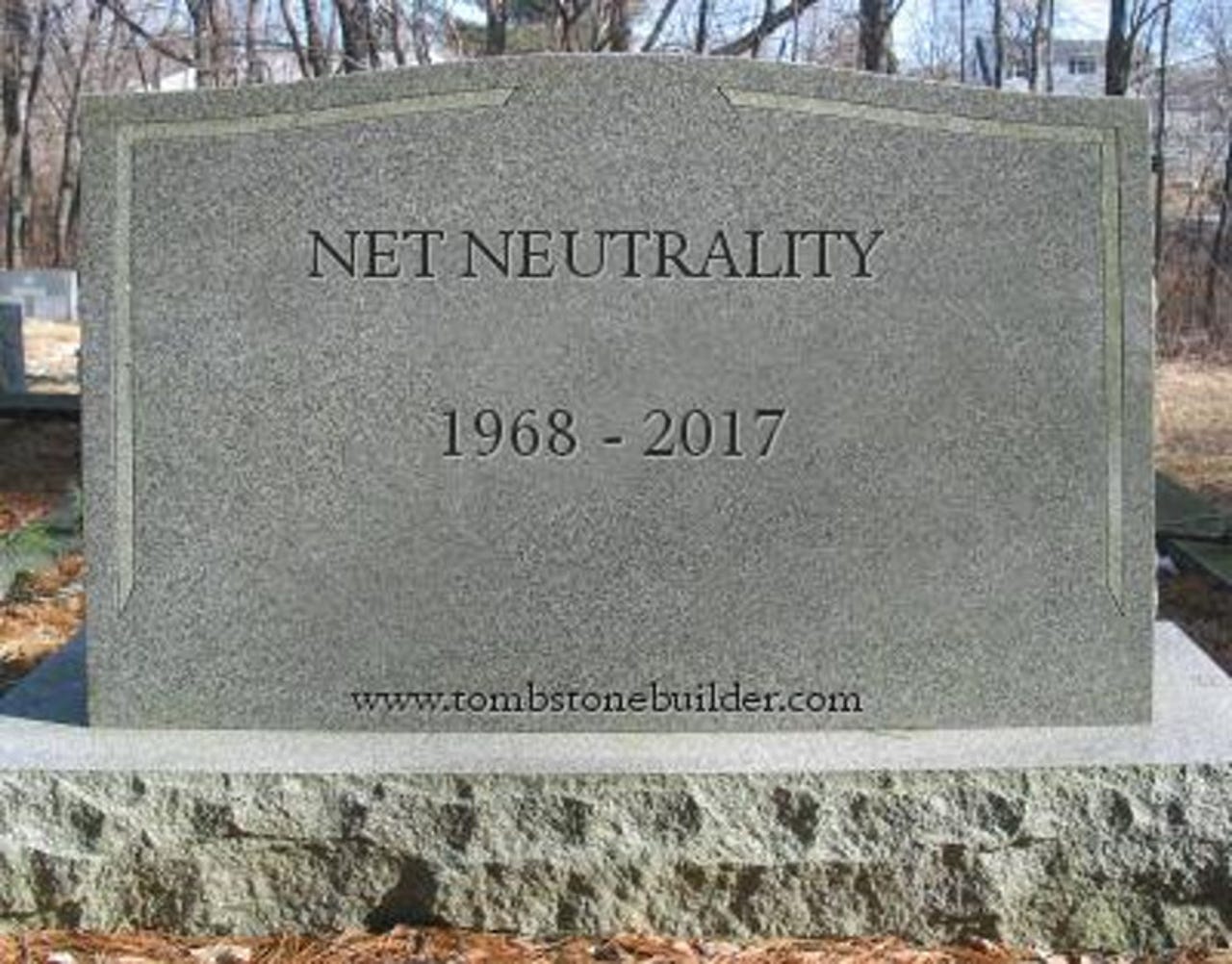Trump's FCC begins net neutrality attack


Under Trump and FCC chairman Ajit Pai, net neutrality is on its way out.
Well, that didn't take long.
President Donald Trump appointed long-time net neutrality enemy Ajit Pai as chairman of the Federal Communications Commission (FCC) -- and he's dismantling net neutrality as fast as he can.
Pai started on Feb. 3 by ending "the investigation into wireless carriers' free data offerings." Going forward, "the Federal Communications Commission will not focus on denying Americans free data. Instead, we will concentrate on expanding broadband deployment and encouraging innovative service offerings."
It sounds good until you actually work out what's happening. For example, AT&T owns DirecTV Now, a new streaming-video service. If you subscribe to DirecTV Now on AT&T Mobility, AT&T won't charge you for streaming it. If, on the other hand, you want to watch a rival streaming service, such as Sling TV or PlayStation Vue, you'll pay the usual data fees. Verzion with its Go90 and Comcast/Xfinity's Stream TV streaming video services offer similar packages.
In a statement, AT&T Senior VP Joan Marsh said: "Today's announcement is a win for the millions of consumers who are reaping the benefits of services made available through free data programs. We're pleased that these innovative products will be able to continue to flourish in the marketplace."
This business method is called zero-rating. AT&T isn't slowing down rivals Sling TV or PlayStation Vue nor is it speeding up DirecTV Now. So far, anyway. Instead, AT&T is making its own video service much more affordable than its competitors.
As Mitchell Baker, chair of the Mozilla Foundation, observed, "Zero-rating as practiced today is selective zero-rating for a few apps and websites; exclusion for the rest of the internet." This is "bad for the ability of new entrepreneurs to grow onto the global scale. It is bad for the long term health of the internet."
Where this move to "free data" actually leads is to your ISP -- not you -- deciding on what internet services you can afford. Netflix, Amazon Video, and Hulu, for instance, will all be more expensive than AT&T's DirecTV Now.
The sole remaining Democrat FCC commissioner, Mignon Clyburn, said, "It is a basic principle of administrative procedure that actions must be accompanied by reasons for that action, else that action is unlawful. Yet that is exactly what [has been] done today. The [FCC] Bureaus rescind prior Bureau actions by simply citing a rule that allows them to do so, when in prior invocations of that rule there have been oft-lengthy explanations for the reasoning behind the actions."
The Trump administration has been long on shoot-from-the-hip decisions and short on reasons for these decisions. Ironically, Pei had just issued a statement claiming that one of his priorities was to "make the agency's operations more transparent."
The long-term effect of this FCC decision will be to break net neutrality. You can count on last-mile ISPs making deals in which partner internet services will be made cheaper while the others become comparatively expensive. Since ISPs seldom face serious competition, you'll be forced to use the "free data" services even if they're not the ones you want.
Pai also stopped nine small ISPs, which had been providing cheap internet connections to low-income consumers, from receiving federal subsidies. This was part of the FCC Lifeline program to bring bring inexpensive phone service to poor people. The FCC, in the 2016 Lifeline Modernization Order, added broadband internet to this program. Up to 13 million Americans had qualified for the program. Now, there are no ISPs authorized to deliver subsidized broadband to the poor.
Related Stories:
- Trump appoints Pai to head FCC and beat-down net neutrality
- Trump advisors plan to strangle net neutrality
- EFF thinks T-Mobile could be violating net neutrality with new data plan
Video: Simple hacks to make Google Chrome better and faster